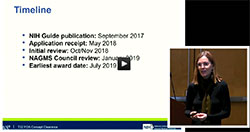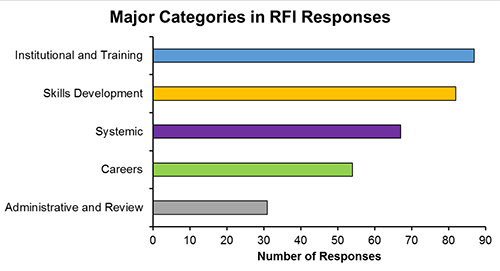NIGMS has a longstanding commitment to graduate training and has for many years supported research training in 11 broad areas of basic biomedical science, including Behavioral-Biomedical Sciences Interface; Bioinformatics and Computational Biology; Biostatistics; Biotechnology; Cellular, Biochemical, and Molecular Sciences; Chemistry-Biology Interface; Genetics; Molecular Biophysics; Molecular Medicine; Pharmacological Sciences; and Systems and Integrative Biology.
With publication of the NIGMS’ new predoctoral training grant funding opportunity announcement, the list now includes Transdisciplinary Basic Biomedical Sciences. This new area is designed to broaden the scope of disciplines supported by an NIGMS training grant and increase the geographical distribution of institutions that might apply.
The transdisciplinary area is open only to a) institutions that currently do not have an NIGMS-funded institutional predoctoral T32 training program in any of the basic biomedical science disciplines listed above (with the exception of Behavioral-Biomedical Sciences Interface or Biostatistics), or b) institutions with current NIGMS-funded predoctoral T32 training programs that propose to merge two or more of their existing NIGMS-funded predoctoral training programs into a single program. Training supported in this area is expected to be broadly-based and multidisciplinary in nature and may be covered by the other NIGMS-supported areas of basic biomedical science disciplines, or may include other emerging area(s) within the NIGMS mission.
Applications for the Transdisciplinary Basic Biomedical Sciences area will be accepted for the May 25, 2018, receipt date and thereafter.
We welcome your comments and questions—they can be posted here, emailed to me, or you may call 301-594-3900.



